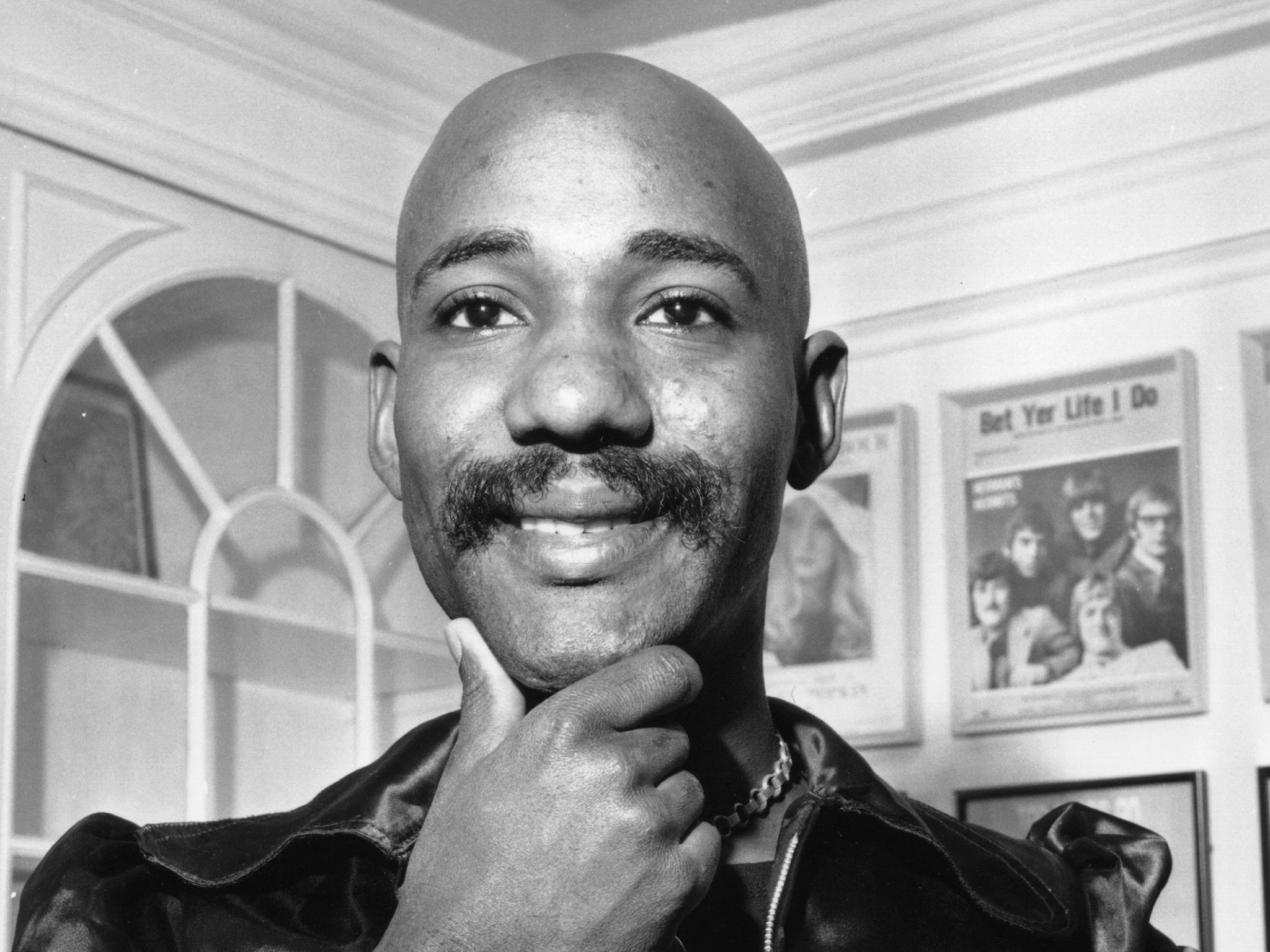Errol Brown: Singer and songwriter whose band Hot Chocolate had a string of infectious hits but also dealt with serious subjects
There was an undercurrent of social comment, especially condemning racism, running through many of Hot Chocolate's songs

In recent years, critics have been reappraising Errol Brown and his group, Hot Chocolate. Certainly the band are known for their extremely infectious hit singles – but there is also an undercurrent of social comment, especially condemning racism, running through many of their songs. Brown once told me, for example, that the hit single "Brother Louie" (1973) was inspired by his experiences as a teenager in London – but his prime purpose was to entertain.
"It never bothered me that we were known as a disco band," he reflected in 2001, "because I was a disco person. Before I was married I was in nightclubs all the time and would get home at four in the morning. A song like 'Disco Queen' is simply about me watching a girl in a nightclub dancing."
Born illegitimate in Jamaica in 1943, he rarely saw his police-officer father, Ivan. His mother, Edna, left him with her sister and came to the UK when he was three, bringing her family over in 1953. He did well at school and secured a clerical job at the Treasury in Whitehall. Encouraged by friends, he shaved his head for a joke; the new look suited him and he kept it. He was often referred to as Britain's Isaac Hayes.
In 1969 Brown befriended the bassist Tony Wilson and some other musicians who were asked to record reggae versions of current hits for a budget label. Brown added some new words to "Give Peace a Chance" and was told it could not be released without John Lennon's permission. Lennon loved the track and invited them to record it for the Beatles' own label, Apple. A receptionist at Apple suggested that the multi-racial group should be called the Hot Chocolate Band. The single only sold 5,000 copies – but Brown and Wilson did write a hit, "Think About Your Children", for another Apple artist, Mary Hopkin.
The producer Mickie Most heard Hot Chocolate and signed them to his label, RAK. They hit the Top 10 immediately with Brown and Wilson's song "Love Is Life" and then again with "I Believe (In Love)". The duo also wrote hit singles for Julie Felix ("Heaven Is Here") and Herman's Hermits ("Bet Yer Life I Do"), both on RAK. Despite some provocative language, "Brother Louie" was another Top 10 hit, but US radio stations would not play it and a modified version was a US No 1 for the New York group Stories. Hot Chocolate's next single, "Rumours", was about Watergate.
Brown's most remarkable performance is on the band's transatlantic hit single "Emma". Brown narrates the story warmly and then in the final minute, he shrieks in falsetto. There was good reason for this. "Emma was a very personal song to me," he confided. "It is about the death of my mother when I was 19. That scream was quite real – it was how I felt."
Although Hot Chocolate are known as a singles band, they should be commended for their 1974 album Cicero Park, which touched on issues of race and class. Many credit the Real Thing as being the first British band to do this, but Hot Chocolate's album predates 4 from 8 by three years. Perhaps more significantly, both bands were demonstrating that soul music was not the exclusive property of the Americans. In 1975, Hot Chocolate went to No 2 in the UK with their most insidious riff, "You Sexy Thing" (1975), which Brown dedicated to his wife, Ginette.
Tony Wilson left Hot Chocolate in 1976, but Brown had few problems in writing hit singles on his own, usually arranged by John Cameron. In 1977, the band hit the top of the charts with "So You Win Again", written by Russ Ballard. With a gentle chuckle, the following year Brown wrote "Every 1's a Winner". Not every one was – but Hot Chocolate scored enough times. "No Doubt About It" (1980) and "Girl Crazy" (1982) were huge hits, but they also released "Mindless Boogie", Brown's take on the Jonestown Massacre, and a version of "Green Shirt", Elvis Costello's song about fascism in London.
In 1981 Hot Chocolate performed at the wedding reception of Prince Charles and Lady Diana Spencer. Brown left the band in 1985 and Hot Chocolate continued for a while, featuring Errol Brown sound-alikes.
For a time, he was preoccupied with owning horses, including Gainsay and Do Be Brief, trained by Jenny Pitman. Gainsay won the Ritz Club trophy at Cheltenham in 1987 but fell twice at the Grand National and became a police horse.
"You Sexy Thing" was prominently featured in the film The Full Monty (1997). Brown toured on the strength of it and was highly amused when the ladies in the audience would shout "Strip! Strip!" at him. He released an album, Still Sexy, in 2001. Brown received an MBE in 2003 but he made his farewell tour in 2009 and settled in the Bahamas, where he died of liver cancer.
SPENCER LEIGH
Errol Ainsworth Brown, singer and songwriter: born Jamaica 12 November 1943; MBE 2003; married 1974 Ginette (two daughters); died Bahamas 6 May 2015.
Subscribe to Independent Premium to bookmark this article
Want to bookmark your favourite articles and stories to read or reference later? Start your Independent Premium subscription today.

Join our commenting forum
Join thought-provoking conversations, follow other Independent readers and see their replies